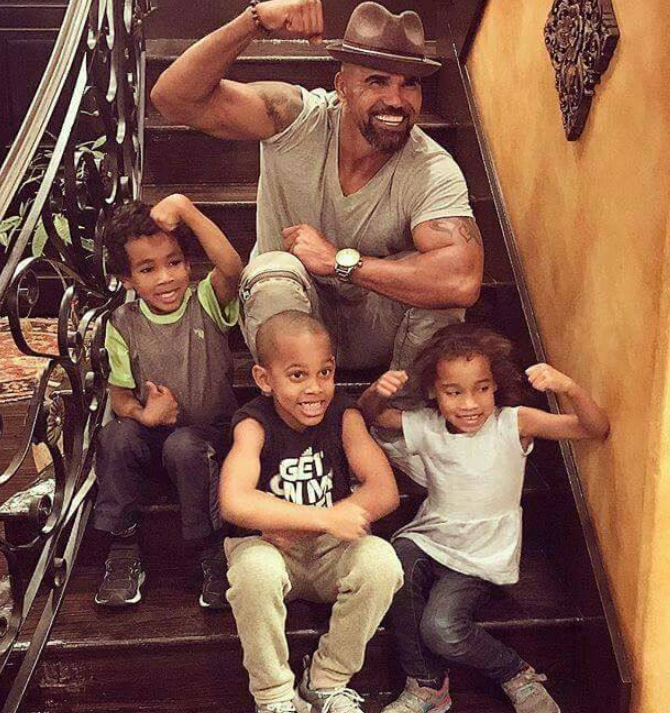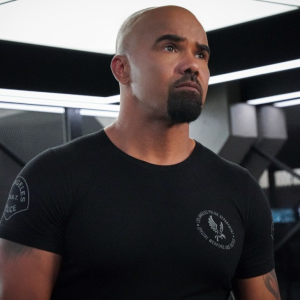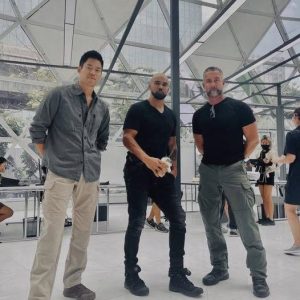The dramatic conclusion of CBS’s action-packed series S.W.A.T. was a rollercoaster of emotions for its dedicated fanbase, the cast, and the crew who poured years into the production. However, as the network forges ahead with plans for a spin-off spearheaded by its lead star, Shemar Moore, not all members of the original team are celebrating this new chapter. Actor David Lim, celebrated for his portrayal of Officer Victor Tan across seven impactful seasons, has recently vocalized his profound disappointment regarding his exclusion from the new project. His candid remarks have resonated deeply within the S.W.A.T. fandom, sparking widespread discussion about loyalty, legacy, and the often-unforgiving nature of the entertainment industry.
In a frank interview with TV Insider, David Lim offered an unvarnished perspective on what it feels like to witness a show he dedicated so much to continue without him. “When you give your all to something for so long and you’re not part of the next chapter, it stings. Of course it does.” This statement cuts deep, not merely for the show’s faithful viewers, but for anyone who has invested their heart and soul into a collective endeavor only to find themselves sidelined when the journey extends. Lim’s honesty underscores a universal experience of feeling overlooked or unappreciated after years of commitment.
The journey of S.W.A.T. itself has been marked by unexpected turns. Originally canceled by CBS after its sixth season, a massive fan outcry, amplified by a passionate social media campaign and direct appeals from Shemar Moore, led to an unprecedented reversal by the network. This decision granted the series a seventh and “final” season, a rare victory for a TV show seemingly on the chopping block. This context makes the current spin-off announcement, focusing solely on Moore’s character, Hondo, even more perplexing for some. The new project is reportedly set to offer a fresh narrative with younger recruits and a darker, grittier tone, presumably in a new city. Yet, the striking absence of most of the original team, including pivotal members like David Lim, creates an undeniable void.

Victor Tan was far more than just a supporting character; he was an indispensable part of the S.W.A.T. unit, a complex individual whose journey resonated deeply with viewers. Over seven seasons, Tan evolved from a somewhat guarded, driven officer with a secretive past (including a stint in undercover narcotics that left emotional scars) to a fully integrated, trusted member of Hondo’s team. His character exemplified loyalty, quiet strength, and continuous growth. He often served as the team’s tactical and technological expert, playing crucial roles in tense hostage negotiations, high-stakes pursuits, and complex investigations. Beyond his professional competence, Tan’s personal life, including his relationship with Bonnie and his struggles with financial and familial pressures, added layers of humanity and vulnerability that endeared him to the audience. He earned his stripes through countless life-or-death situations, making his exclusion from future narratives a perplexing decision for fans and critics alike. When news broke that Lim was entirely left out of the spin-off discussions, the question echoed across the fandom: Why?
The dynamics within the S.W.A.T. cast have always appeared cohesive and supportive, fostering a strong “team as family” ethos that was central to the show’s appeal. While neither David Lim nor Shemar Moore has hinted at any personal animosity or “beef,” Lim’s comments imply a disheartening lack of communication or closure regarding the decision. “I’ve got nothing but respect for Shemar,” Lim stated, acknowledging his colleague’s leading role, “but it’s tough not being part of something you helped build.” Moore, for his part, has remained publicly silent on Lim’s remarks, a quietness that has not gone unnoticed by a curious fanbase eager for transparency. This silence has fueled speculation as to whether the decision to exclude core original cast members originated from CBS, Moore, or a collaborative choice between the two.
The fan reactions to Lim’s revelation have been swift and passionate, demonstrating the deep loyalty that S.W.A.T. commanded. Social media platforms like X (formerly Twitter) and Reddit were flooded with messages of support for Lim, many echoing the sentiment: “No Tan, no watch.” These calls for the spin-off to include original cast members highlight the risk of alienating the very audience that championed the show’s unlikely renewal. The hashtag JusticeForTan has rapidly gained traction, recalling the powerful SaveSWAT campaign that successfully brought the series back from cancellation. Fans are not just demanding character appearances; they are advocating for the deserved recognition and narrative closure for characters who became integral to their viewing experience.

Behind the glitz of Hollywood lies a complex web of strategic and often political decisions. Spin-offs, while offering a fresh appeal and a chance to revitalize a franchise, are frequently driven by practical considerations: new cast members might lead to lower production budgets, or a new creative vision might require a departure from established dynamics. While such decisions are rarely personal, their impact on veteran actors can be profoundly hurtful. It is not uncommon for actors who have been integral to a show’s success to be sidelined in favor of new talent or a dramatically different storytelling direction. This business reality often clashes with the emotional investment of both actors and audiences.
Despite the obvious sting of exclusion, David Lim has maintained a dignified and professional stance. He expressed immense pride in his time on S.W.A.T. and profound gratitude for the unwavering support of the fans. “The show gave me so much. I’ll always carry that with me,” he affirmed. Lim is actively pursuing new opportunities, hinting at an upcoming project that promises to be “very different” from what his fans might expect. This forward-looking attitude, even amidst disappointment, speaks volumes about his character.
The exclusion of key cast members undoubtedly places significant pressure on the new S.W.A.T. spin-off to prove its worth. The original series thrived on the undeniable chemistry and camaraderie of its ensemble. The “team as family” dynamic was its emotional core, providing a foundation for both its action sequences and its exploration of social issues. Without the familiar faces and the established emotional weight of the original unit, will the spin-off be able to replicate the unique appeal that captivated millions? As both the star and an executive producer of the new venture, Shemar Moore faces the challenging task of balancing creative evolution with acknowledging the legacy and loyalties of the past. Fans, ever vigilant, will be scrutinizing every move.

The unpredictable nature of television means that a return for Victor Tan, while not currently planned, cannot be entirely ruled out. A sustained, passionate fan movement, or a strategic shift in creative direction from the producers, could always pave the way for Lim’s character to reappear. Cameos, flashbacks, or even a late-season return are all possibilities if the creators are truly attentive to audience sentiment. What transpired with David Lim serves as a potent reminder that spin-offs, while looking to build a future, must also honor the past they emerge from. Characters like Tan were not merely expendable background figures; they became integral parts of the show’s fabric, family members to the viewers. When beloved characters are erased from a narrative, there is an inherent risk of undermining the very elements that made the original show special and memorable.
Ultimately, David Lim’s candid comments about the S.W.A.T. spin-off resonate because they highlight a broader truth about the entertainment industry’s often-impersonal treatment of legacy cast members. While Shemar Moore’s new chapter offers the promise of fresh stories, the absence of familiar and beloved faces like Victor Tan leaves a noticeable void. The enduring heart of S.W.A.T. was always centered on the strength and unity of its team. Without all of its integral parts, the new iteration faces an uphill battle to recreate the magic that defined its predecessor, leaving fans to ponder what might have been.





